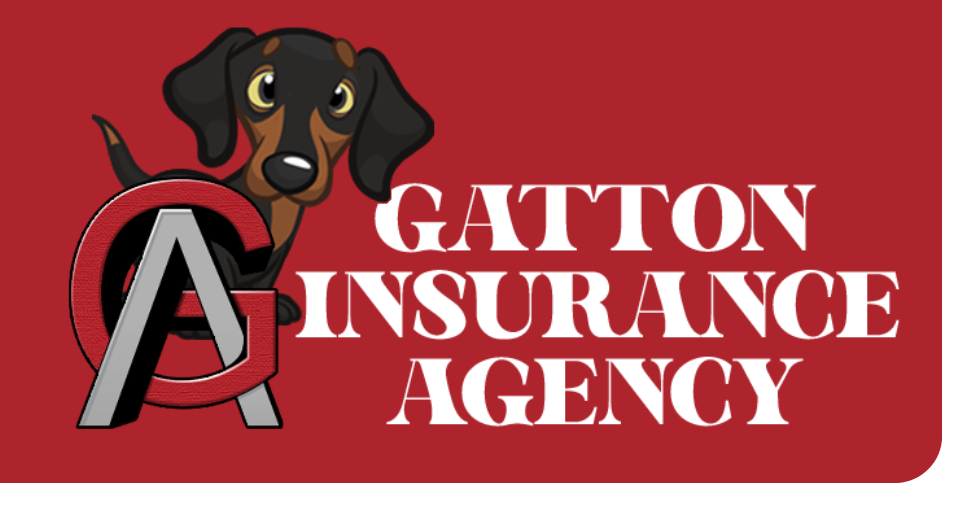Introduction to Auto Insurance Rates
Auto insurance rates in Indiana are influenced by a myriad of factors, many of which are intrinsically linked to individual driving habits. Insurers assess risk when determining premiums, and these assessments are based on a combination of statistical data and personal information. This data includes but is not limited to a driver’s history, the type of vehicle insured, and the prevalent driving conditions in Indiana. Understanding this complex matrix is crucial for drivers looking to optimize their insurance costs.
At its core, auto insurance operates on a principle of risk management. Insurance companies like The Gatton Agency evaluate a driver’s tendencies—whether they are considered safe, risk-prone, or somewhere in between. A primary factor that often influences rates is the frequency and severity of past claims. If a driver has made numerous claims due to accidents or traffic violations, it generally indicates a higher risk, leading to elevated insurance premiums.
Moreover, factors such as age, gender, and geographic location also play significant roles in determining auto insurance rates in Indiana. Younger drivers typically face higher rates due to less experience behind the wheel, while certain areas might present more risk due to higher rates of accidents or theft. This complex interplay of variables emphasizes the importance of adopting safe driving habits. Indeed, drivers who consistently demonstrate caution and adhere to traffic regulations can enhance their profiles and potentially benefit from lower insurance costs.
As we delve deeper into this subject, it will become increasingly clear how integral driving habits are in shaping not only individual risk assessments but also the overall landscape of auto insurance in Indiana. In this context, fostering safe driving behaviors can yield tangible savings on insurance premiums, making it a vital aspect for drivers to consider.
Understanding Safe Driving Habits
Safe driving habits are essential practices that contribute to road safety and the overall well-being of drivers and passengers alike. Primarily, these habits encompass obeying speed limits, avoiding distractions while driving, maintaining an appropriate distance from other vehicles, and applying defensive driving strategies. Collectively, these behaviors not only help prevent accidents but also play a critical role in securing favorable Indiana auto insurance rates.
Obeying speed limits is perhaps the most straightforward safe driving habit. It enhances reaction time and allows drivers to navigate their surroundings more effectively, which is essential for avoiding potential hazards. Similarly, avoiding distracted driving—such as texting, using mobile devices, or engaging in other activities while behind the wheel—is paramount for maintaining focus and awareness of the road. Studies indicate that distractions significantly increase the likelihood of accidents, thereby impacting insurance premiums.
Maintaining a safe distance from other vehicles is another cornerstone of safe driving. This practice, often referred to as the “three-second rule,” encourages drivers to allow enough space between their vehicle and the one ahead, enabling adequate response time to sudden stops or unforeseen obstacles. Furthermore, defensive driving entails anticipating the actions of other road users and being prepared for sudden events, which is a proactive approach to driving that can greatly reduce the risk of collisions.
On a psychological level, safe driving also requires cultivating patience, impulse control, and risk assessment abilities. Drivers need to adopt an awareness of their surroundings while keeping their emotions in check, particularly in stressful situations. The integration of these skills fosters a mindset that prioritizes safety and conscientious driving behavior. By implementing and refining these safe driving habits, individuals in Indiana can not only protect themselves and others on the road but can also experience the financial benefits associated with lower auto insurance premiums.
The Impact of Driving History on Insurance Rates
When evaluating auto insurance rates in Indiana, one of the most critical factors taken into account is a driver’s history. This record serves as a reliable indicator of potential future risks, influencing the premiums charged by insurance providers, including prominent firms like The Gatton Agency. A driver who has experienced numerous accidents or accumulated multiple speeding tickets may find that their insurance rates are significantly higher compared to those who demonstrate safe driving behaviors.
Accidents play a major role in determining insurance rates. Insurers view a history of accidents as a red flag, often interpreting it as evidence of high-risk behavior. For instance, an individual in Indiana who has been in several accidents is likely to face elevated premiums as insurers calculate the likelihood of future claims. On the contrary, a driver with a clean record can generally expect to enjoy more favorable rates, which reflects their lower associated risk.
Similarly, infractions such as speeding tickets or DUI charges are red flags in the eyes of insurance companies. These violations not only indicate a propensity for unsafe driving but also suggest a lack of respect for traffic laws, leading to a higher probability of future incidents. Consequently, it is common for those with such violations to see a spike in their premiums, sometimes even doubling them. In contrast, safe drivers with no violations can take advantage of lower rates and additional discounts, which actively reward responsible driving practices.
In light of these factors, individuals seeking to reduce their auto insurance rates in Indiana should focus on developing and maintaining a clean driving record. By doing so, policyholders can significantly enhance their eligibility for lower premiums, ultimately fostering a more cost-effective approach to their insurance expenses.
How Insurance Companies Evaluate Risk
Insurance companies utilize a variety of metrics to assess the risk levels associated with drivers in Indiana. The primary goal of this evaluation is to determine the likelihood of a driver filing a claim, which directly influences their auto insurance premiums. A significant portion of the evaluation process revolves around an individual’s driving record. Safe driving behaviors, such as adherence to speed limits, avoidance of accidents, and a history of traffic violations, are meticulously analyzed. For example, a driver with a clean record is generally perceived as a lower risk compared to someone with multiple infractions.
Additionally, insurance providers often assess data compiled from state databases that track driving histories, accident reports, and citations. This data aids in establishing a comprehensive picture of a driver’s behavior on the road. Factors such as the frequency of claims and the average cost of those claims play a crucial role in risk evaluation. The Gatton Agency, a reputable provider of auto insurance in Indiana, recognizes that safe driving translates into fewer claims, which positively impacts the rates offered to responsible drivers.
Moreover, many insurance companies have increasingly incorporated outcomes from safety programs into their risk assessments. For instance, participation in defensive driving courses could result in a favorable evaluation of a driver’s risk level. Drivers that engage in such proactive safety measures may benefit from discounts or lower premiums, illustrating the connection between responsible driving habits and insurance costs. Thus, safe drivers, through their diligence and commitment to road safety, are often rewarded with more favorable insurance rates, emphasizing the importance of promoting safe driving habits in Indiana.
Discounts for Safe Driving Practices
Safe driving practices not only contribute to better road safety but can also lead to significant discounts on your auto insurance rates in Indiana. Insurance providers, including The Gatton Agency, often reward drivers for maintaining a clean driving record and adopting safety measures. One of the most commonly offered incentives is the safe driver discount, which is available to policyholders who have not been involved in any accidents or received traffic violations within a specified period. This discount can result in substantial savings on premiums, thereby encouraging responsible driving behavior.
Additionally, many insurance companies now incorporate telematics programs, which utilize technology to monitor driving habits. These programs typically involve installing a device in your vehicle that tracks metrics such as speed, braking patterns, and acceleration. By demonstrating safe driving behaviors through data collected over time, drivers can qualify for additional discounts on their auto insurance policies. This not only helps in reducing insurance costs but also promotes ongoing awareness of safe driving techniques.
Another effective way to earn discounts is through bundling options. Many insurers, including The Gatton Agency, offer reduced rates when clients combine multiple policies, such as auto and home insurance. By maintaining good driving habits and considering these bundled discounts, drivers can achieve even greater savings on their total insurance expenditures. To maximize these opportunities, it is advisable for drivers to regularly review their policy terms and speak with their insurance agents about qualifying factors for discounts. This proactive approach not only aids in optimizing coverage but also reinforces the importance of safe driving practices throughout Indiana.
The Benefits of Defensive Driving Courses
Defensive driving courses present an invaluable opportunity for drivers in Indiana to enhance their driving skills while simultaneously reducing their auto insurance premiums. These courses focus on educating participants about safe driving techniques, hazard recognition, and the importance of maintaining a proactive approach behind the wheel. By emphasizing the need to anticipate and mitigate potential dangers, such courses equip drivers with knowledge that can prevent accident occurrences.
One of the main advantages of enrolling in a defensive driving course is the opportunity to cultivate better driving habits. Participants learn about the rules of the road, how to react to various driving conditions, and strategies to manage aggressive drivers or hazardous situations effectively. By improving their driving skills, participants not only boost their confidence but also demonstrate their commitment to safety, which insurers recognize favorably during policy assessments.
Upon completion of a defensive driving course, drivers typically receive a certificate that serves as proof of their training. Many insurance companies in Indiana, including those related to the Gatton Agency, offer discounts to policyholders who can present this certification. Such discounts can lead to notable reductions in insurance premiums, making it a financially prudent decision for proactive drivers. Additionally, some states may even prevent traffic violations from impacting an individual’s driving record if they successfully complete these courses, further benefiting their insurance rates.
Ultimately, participating in a defensive driving course is not just about securing lower insurance premiums; it is an investment in one’s safety and the safety of others on the road. This approach underscores the importance of responsible driving behavior and fosters a culture of safety that contributes to the broader community.
Long-term Financial Benefits of Safe Driving
Practicing safe driving habits goes beyond the immediate benefit of reduced auto insurance rates in Indiana. Individuals who prioritize safety can experience significant long-term financial advantages. One of the most prominent benefits is the reduction in vehicle maintenance costs, which can accrue over time. Safe driving reduces wear and tear on a vehicle, leading to less frequent repairs and longer-lasting performance. Consequently, fewer trips to the mechanic translate directly into financial savings, allowing drivers to allocate their funds towards more productive uses.
Additionally, safe driving reduces the likelihood of being involved in accidents. According to various studies, drivers who adopt responsible behaviors, such as obeying speed limits, avoiding distractions, and practicing defensive driving, are less likely to be in incidents that could potentially lead to high repair costs and medical expenses. Each accident not only affects immediate financial stability due to insurance claims but can also result in higher premiums from insurance providers. Therefore, maintaining a clean driving record is crucial for long-term economic health.
Moreover, beyond potential price hikes in insurance, drivers with a history of safe driving can also benefit from a positive reputation among lenders and employers, leading to favorable loan terms or even job opportunities in industries where driving is integral. Such financial implications highlight that the habits we cultivate on the road can significantly influence our broader economic prospects.
In the context of Indiana, where local roads and driving conditions can present unique challenges, the role of safe driving becomes even more vital. By committing to these practices, drivers not only ensure their safety but also pave the way for sustained financial stability and reduced insurance expenses. As individuals adopt and maintain safe driving habits, the cumulative effects contribute to a healthier financial trajectory that extends well beyond the realm of insurance premiums.
State-specific Laws and Regulations
Understanding the legal framework governing safe driving in Indiana is crucial for drivers seeking to lower their auto insurance rates. One pivotal element is the points system, which monitors a driver’s traffic violations and assesses penalties accordingly. Indiana operates on a point-based system where points are assigned to specific violations. For instance, speeding may result in two points, while more serious offenses, such as reckless driving, can lead to up to six points. Accumulating a certain number of points within a specified timeframe can lead to license suspension, which can drastically affect an individual’s insurance rates.
Furthermore, Indiana law mandates that drivers must adhere to specific regulations concerning driving under the influence (DUI) and distracted driving. A DUI conviction can carry severe penalties, including fines, license suspension, and mandatory alcohol education programs. Such infractions do not only compromise personal safety but also lead to increased premiums with insurance providers like The Gatton Agency. Maintaining a clean driving record is thus imperative for drivers to avoid additional insurance costs and ensure compliance with state laws.
Another important regulation to consider is the mandatory insurance coverage requirements in Indiana. Drivers are legally obligated to carry minimum liability insurance, which covers damages to other parties in the event of an accident. Understanding these requirements ensures that drivers select appropriate policies that satisfy state regulations while potentially taking advantage of discounts for maintaining safe driving trends. By following Indiana’s laws and demonstrating safe driving behavior, individuals can positively influence their insurance costs, ultimately leading to more affordable rates and safer roadways.
Conclusion
In summary, safe driving habits play a critical role in influencing auto insurance rates in Indiana. As highlighted throughout this blog post, maintaining a clean driving record, adhering to traffic laws, and engaging in defensive driving can significantly reduce the likelihood of accidents and violations. These practices not only protect the well-being of drivers and passengers but also contribute to a safer driving environment for all road users.
The connection between responsible driving and lower insurance premiums offered by agencies such as The Gatton Agency is clear. By demonstrating a commitment to safe driving, Indiana residents can show insurance providers that they are lower-risk clients, thereby qualifying for reduced rates. Insurance companies often reward those with good driving habits through various discounts or incentives, which can lead to significant savings over time.
Furthermore, implementing safe driving strategies, such as avoiding distractions and respecting speed limits, can lead to fewer claims and, in turn, a more favorable assessment of one’s insurance profile. Not only does this help in achieving more competitive rates, but it also assures peace of mind that comes with knowing one is taking proactive steps towards enhancing motor vehicle safety.





